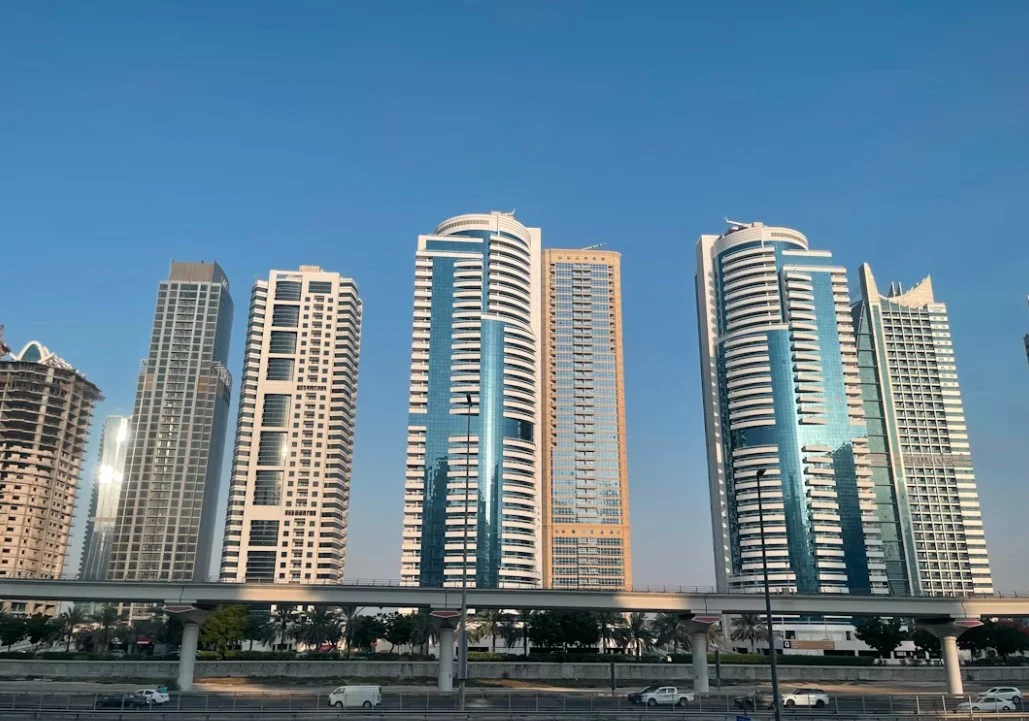Getting a Mortgage in the UAE

The real estate market in the UAE has experienced consistent growth in recent years, particularly following the introduction of full property ownership rights for foreign nationals. For both residents and international investors, acquiring real estate in the Emirates offers tangible advantages — from capital appreciation to steady rental income. Combined with the country’s secure environment, robust economy, and premium standards in both public and private services, the UAE remains an appealing destination for property ownership and long-term investment.
But what if your available capital only covers part of the purchase? In such cases, obtaining a mortgage is a viable option — and it’s accessible to both Emiratis and foreign buyers. Below is an overview of the key requirements, application process, and practical considerations.
Mortgage Eligibility for Foreign Buyers in Dubai
To qualify for a mortgage in Dubai, foreign applicants must meet a range of criteria set by local financial institutions:
- – Employment or business presence: Applicants must either be employed by a UAE-registered company or operate a business legally established in the country.
- – Documented financial history: A 12-month bank statement is required to validate income consistency and legal origin.
- -Audit requirements for entrepreneurs: Business owners may be required to request an audit on a business to verify financial stability and demonstrate transparency to the lending institution.
- – Minimum down payment: For non-residents, the down payment must be at least 50% of the property’s value. For UAE residents, this threshold is reduced to 20%.
- – Age limits: Applicants should be aged between 21 and 65. The loan must be repaid in full before reaching retirement age.
- – Post-payment liquidity: Borrowers must retain sufficient funds to support basic living expenses in the UAE, with a minimum of $900 per family member per month.
Additional Considerations for Non-Residents
Foreign nationals holding a UAE residency — whether through professional achievement or prior property investment — generally enjoy smoother mortgage approval processes. However, banks tend to apply stricter checks and additional conditions for non-residents, which may affect eligibility and terms.
Below are additional factors to consider beyond the standard requirements:
Less Obvious but Crucial Details
- – Freehold zones only: Foreigners are only permitted to purchase real estate in designated freehold areas, primarily located in Dubai. Always confirm the ownership status of the property before proceeding.
- – Off-plan property limitations: Mortgages for properties under construction are tied to the development timeline. Only projects due for completion within two years of the loan approval are eligible.
- – Mandatory insurance: Borrowers must purchase insurance to cover income loss or disability (typically 0.5–1% of the loan) as well as title insurance (around 0.05%), which protects against pre-existing claims to the property.
- – Bank fees: Most banks charge a 1% processing fee based on the property’s value. This is paid in advance and refunded if the mortgage application is declined.
- – Financing terms: Non-resident applicants may face higher interest rates and less flexible repayment conditions. It is essential to compare offers from multiple banks before committing.

Mortgage Rates and Loan Terms
Interest rates for residential mortgages in the UAE generally range from 2.5% to 3% per annum. However, non-resident borrowers typically face higher rates, from 3.5% up to 7%, depending on their profile and the lender’s risk assessment.
- – Maximum loan-to-value ratio: Up to 80% of the property’s value for residents, and up to 50% for non-residents.
- – Loan duration: Mortgage terms usually range from a minimum of 3 years to a maximum of 25 years.
What Affects Mortgage Interest Rates in the UAE?
As in many global markets, banks in the UAE offer two main types of interest rates on mortgage products — fixed and floating. Each has its own characteristics and is suited to different borrower profiles and financial strategies.
| Type | Overview |
|---|---|
| Fixed Rate | A fixed-rate mortgage maintains the same interest rate throughout a predefined period — or even for the entire loan term. This ensures consistent monthly payments, offering borrowers predictability and protection against market volatility. Fixed-rate mortgages are especially advantageous for long-term financing, where rate stability is a priority. |
| Floating Rate | A floating (or variable) rate adjusts periodically in line with market trends, inflation, and monetary policy. This means monthly payments can rise or fall depending on economic conditions. In the UAE, floating rates are often tied to the Central Bank’s benchmark interest rate, which ranged between 4% and 7% in 2023, before leveling out around 5%. These types of rates are commonly applied to shorter-term loans, typically up to 5 years. While they offer potential cost savings when rates decline, they also carry the risk of increased payments during periods of rate hikes. |
Choosing between fixed and floating rates depends on your financial goals, risk tolerance, and market outlook. Consulting with a financial advisor or mortgage broker can help you assess which option aligns best with your property investment strategy.
Required Documentation for a UAE Mortgage Application
When applying for a mortgage in Dubai or elsewhere in the UAE, you’ll need to prepare a comprehensive set of documents to meet the bank’s due diligence and risk assessment procedures. These typically include:
- – A completed mortgage application form
- – Valid passport and ID copies
- – UAE residence visa, if applicable
- – Family certificate confirming household composition
- – An official employment contract or employer’s letter confirming job status and salary
- – Bank statements from the past six months, to verify income consistency
- – Your most recent tax return
- – Credit report, if requested — while holding existing loans isn’t disqualifying, you must demonstrate sufficient disposable income to cover mortgage payments and ongoing living expenses
Depending on the lender and the specific mortgage product, additional documentation may be requested. It’s recommended to consult with your bank or mortgage advisor early in the process to avoid delays.
Step-by-Step Mortgage Application Process in the UAE
Obtaining a mortgage in the UAE typically follows a structured sequence of actions. Here’s an outline of each stage, including timelines and practical considerations.
1. Selecting the Right Bank
If you already have a business or employment history in the UAE, you may benefit from working with your existing bank. However, comparing multiple offers is strongly advised, as other institutions might offer more competitive rates or flexible conditions.
- – Timeframe: Choosing a bank typically takes 1–2 business days
- – Loan approval: Once your application is submitted, the bank will evaluate your financial profile and issue an approval decision within 5–7 business days
💡 Make sure to disclose all income streams (e.g., business revenue, investments, or asset sales) and clearly indicate the source of your down payment. Funds must be legally obtained and cannot be borrowed from third parties.
2. Property Selection
Choosing the right property is a critical step, particularly for buyers seeking long-term value or rental yield. Consider:
- – Location: Established vs. emerging neighborhoods
- – Property type: Residential or commercial
- – Budget: Including not just purchase price but also transaction costs, taxes, and fees
- – Developer reputation: Stick to licensed, reputable developers
- – Investment potential: Review projected price growth and rental returns
Most UAE banks require an independent valuation as part of the approval process, so working with a real estate agent and valuation expert early can streamline the process.
- – Average duration: Property selection may take up to 30 days, depending on market conditions and buyer preferences

3. Independent Property Appraisal
Once the property is selected and initial loan approval is granted, the buyer signs a memorandum of understanding (MoU) with the seller and provides a security deposit. At this point, an independent property appraiser — typically approved by the bank — is engaged.
- – The appraiser assesses the market value, condition, and legal status of the property
- – Their report is submitted to the bank for final loan decisioning
The valuation fee is usually paid by the borrower and ranges from AED 2,500 to 3,000, plus 5% VAT
- Duration: The valuation process generally takes 2 to 3 weeks
Fund Disbursement and Repayment Structure
After completing the initial procedures — including bank approval, property selection, and valuation — the bank disburses the agreed mortgage amount directly to the seller. Simultaneously, the buyer’s and lender’s funds are securely placed in an escrow account, ensuring transaction transparency and legal protection for all parties involved.
The borrower then receives a detailed repayment schedule, outlining monthly payment amounts based on the agreed interest structure (fixed or floating). Monthly repayments typically begin the month following disbursement. Fixed-rate mortgages are usually preferred for medium- to long-term loans (10–25 years) due to their payment predictability.
Title Registration and Ownership
Once the transaction is finalized, the buyer, seller, and bank must jointly register the property transfer with the appropriate government authority — typically the Dubai Land Department (DLD), which oversees the legal transfer of property titles in Dubai. The buyer is then granted official ownership and receives the keys to the property.
However, the title deed will include a notation stating “Mortgaged in favor of [bank name]”, indicating that the lender retains a legal claim until the loan is fully repaid. Once the mortgage is settled, a new title without this restriction is issued.
With proper planning and parallel coordination of document collection, bank approval, and property search, the entire mortgage process can be completed in under one month. Working with B2B Consulty ensures optimal efficiency and expert support at every stage.
Consequences of Payment Delays
Before entering into a mortgage agreement, it is essential to understand the legal obligations and potential risks of non-compliance. The UAE enforces strict financial regulations, and even a 30-day delay in payments can trigger serious consequences:
- -A negative credit record that affects future borrowing ability
- – Late payment penalties and possible increases in interest rates
- – Legal action to recover the outstanding debt
- – Potential repossession and sale of the property by the bank
- – In cases of default by non-residents, deportation and permanent re-entry ban may apply
Additional Costs When Purchasing Property
While mortgage financing eases the purchase, buyers must be prepared for associated fees, most of which are borne by the buyer. The only exception is the 4% Dubai Land Department registration fee, which may be shared with the seller in rare negotiated cases.
Here are the common charges:
- Mortgage registration fee: 0.25% of the mortgage amount, plus a fixed fee (~290 AED)
- Ownership certificate issuance: ~580 AED
- Real estate agent commission: ~2% of the purchase price (working with an agent is mandatory)
- Notary fees: ~1,600–2,000 AED per document, plus 5% VAT and admin costs for legal certification
✅ Online notary services are available for document verification related to foreign passports or Emirates IDs, which simplifies formalities for international clients.
How to Simplify the Mortgage Process in the UAE
Whether you’re a new resident or have been living in the UAE for some time, navigating the mortgage process can still be complex. Legal, financial, and procedural challenges often make the experience time-consuming and overwhelming — particularly for first-time buyers or entrepreneurs unfamiliar with local regulations.
While articles like this can help you understand the basics, they cannot replace professional guidance.
With over a decade of experience in the UAE market, B2B Consulty has successfully assisted hundreds of foreign nationals and business owners in acquiring property and office spaces. We’ve seen first-hand how difficult it can be to manage documentation, evaluate real estate, and comply with legal requirements without an integrated approach.
That’s why we offer end-to-end support packages, tailored to your needs:
- – Property or commercial space selection
- – Market liquidity and risk assessment
- – Bank comparison and mortgage matchmaking
- – Full documentation and certification support
- – Legal and financial consultations by licensed experts




